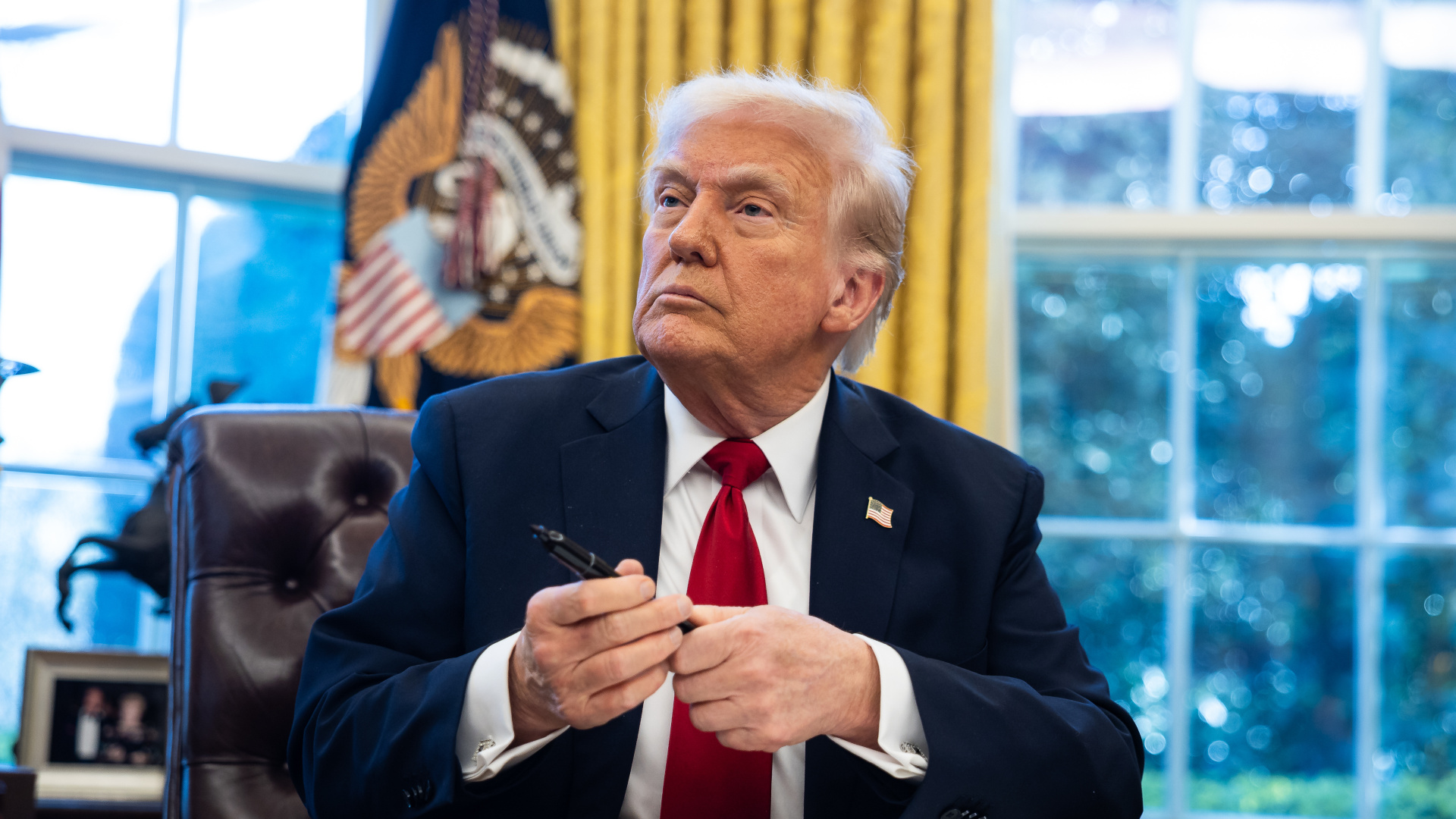
Lately, it seems like the checks you are writing every month are going up. Tax bills and ‘big, beautiful bills’ are one thing, but what about the bills you pay personally on a regular basis? The Trump administration has even acknowledged that the recent tariffs could cause inflation.
Learn More: What Trump’s New Tax Law Means for Upper-Middle-Class Families in 2025
Read Next: 7 Tax Loopholes the Rich Use To Pay Less and Build More Wealth
Still, some financial experts remain optimistic that the administration’s policies can help reduce other costs. So, will Trump lower bills? For the average American, below are seven bills that might drop in price rather than climb.
Gasoline
It may not be energy efficient, but you’ve heard President Trump parrot the line “Drill baby, drill,” and sure enough, his administration has aimed to ease drilling regulation and boost production.
“With increased domestic oil production, we may be able to look forward to cheaper pump gas,” said Nick Drewe, personal finance expert at Wethrift.
Shipping Costs
Lower fuel prices mean lower costs to transport goods across the country. (At least domestically, as imported goods being shipped in will now cost a premium in the long term.)
Dennis Shirshikov, professor of finance, economics and accounting at the City University of New York and Fullmind, points out how this can help consumers and businesses alike.
“Companies with heavy transportation costs — a regional logistics company owned by one of my colleagues comes to mind — saw near-immediate reductions in fuel costs, providing significant relief to operating budgets,” he said.
That can boost profits and hiring of course, but it also leaves wider margins for lowering prices.
Find Out: 5 Ways Trump’s ‘Big, Beautiful Bill’ Could Impact Your Wallet
Utility Bills
With everything from food stamps to Social Security being on the chopping block, the good news is your monthly gas and electric bills might get a little lower by next year. Greater energy production also means lower prices for natural gas and electricity.
Austin Glanzer of 717HomeBuyers owns rental properties and pays many of his renters’ utility bills.
“Trump’s previous presidency favored deregulation in the energy sector, boosting domestic oil and gas production,” he said. “Renewed policies could significantly decrease electric and heating bills for Americans.”
Domestically Grown Foods
Among other downsides, import tariffs typically spur other countries to hit back with reciprocal tariffs on U.S. goods, hurting exporters. But that comes with a silver lining.
“Some US exporters could end up with an oversupply of goods that they intended to export,” explained Bobbi Rebell, certified financial planner (CFP) with CardRates.com. “That oversupply could lead to them cutting prices on goods they now have to sell domestically, leading to better prices for consumers.”
Rebell mentioned food staples in particular. “Some popular food products that have big export markets to places like China include soybeans, corn and wheat, along with dairy and some meat products,” he added.
Pharmaceuticals
By reducing regulation at the Food and Drug Administration (FDA), the Trump administration hopes to stimulate the pharmaceutical industry.
“Under Trump, the FDA has tried to speed the entry of generic drugs and cut consumer prices,” Shirshikov added. “Trump’s first administration prioritized deregulation and sought to lower drug prices by increasing competition and streamlining approval processes.”
Many analysts expect an even greater deregulation push this time around.
Health Insurance Premiums
Though there seems to have been more tax cuts than tax credits in the White House administration’s One Big Beautiful Bill Act (OBBBA), Trump and many members of Congress have vocally aimed at reducing health insurance premiums.
Small business owner Thomas Altadonna of Platinum Fitness remains optimistic on this front. “With Trump in office, reduced regulatory burdens could lower healthcare premiums,” he said. “This would benefit both consumers and small businesses, who currently face steep costs for employee healthcare.”
Individual Income Taxes
Even Trump himself has acknowledged that tariffs and DOGE cuts can cause “disturbance” in the economy. But higher revenue from tariffs and lower spending could enable the administration to cut individual income-driven state and local taxes.
David Beahm, CEO of Blanchard and Company, said this might impact everyday Americans. “Trump has floated the idea of ending taxes for individuals earning under $150,000 annually,” he said.
Final Take To GO
Though Trump signs many pieces of paper he claims are tax breaks in the long run, his proposals and laws seem to raise more questions than answers. Will any of these lower bills for U.S. households come to pass? Time will tell, as the administration’s policy positions come home to roost.
Caitlyn Moorhead contributed to the reporting for this article.
More From GOBankingRates
- Rachel Cruze: The Real Reason Couples Fight About Money
- 6 Best Items Retirees Should Buy at Costco During Labor Day
- 4 Things You Should Do When Your Salary Hits $100K
- How Much Money Is Needed To Be Considered Middle Class in Your State?
This article originally appeared on GOBankingRates.com: 7 Bills That Could Plummet by Next Year Under President Trump







